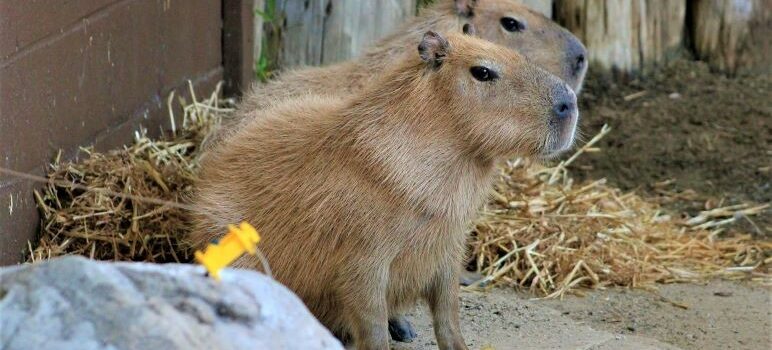They are known as the largest living rodents in the world, and now two 1-year-old capybara sisters call Happy Hollow Zoo and Park in San Jose home.
The capybara sisters were born at Abeline Zoo in Abeline, Texas, early in October and were transferred to Happy Hollow at the recommendation of the Association of Zoos and Aquariums Capybara Species Survival Plan.
Capybaras are not endangered, but their native habitat in the Amazon Rainforest is. The Species Survival Plan coordinates the placement of individual members of species at zoos and sanctuaries nationwide to ensure that genetic health and long-term viability of the species.
Happy Hollow said it hopes to kindle the spirit of conservation in its guests by giving them the opportunity to observe the capybaras in person.
“We know the public has been eagerly anticipating the return of capybaras to Happy Hollow, and we are excited for our community to meet these new animals and learn about this unique species,” zoo manager Amber Rindy said.
Cousins to domestic guinea pigs, capybaras are unusually long mammals with webbed feet. They are known for their love of water in their natural Central and South American habitats.
Capybaras can stay underwater for up to five minutes to hide from predators when threatened.
Happy Hollow said the capybaras are adjusting well to their new habitat. They enjoy swimming in their pool and nibbling on bamboo.
Visitors can see these giant rodents and other animals from 10am to 4pm Wednesday through Friday, and 10am. to 5pm. on weekends.
See happyhollow.org for more details.
Heather Allen is a reporter with Bay City News.


I have been to Happy Hollow so many times. I can’t wait to visit the Capybaras. They seem so peaceful just chilling in the water and eating bamboo.